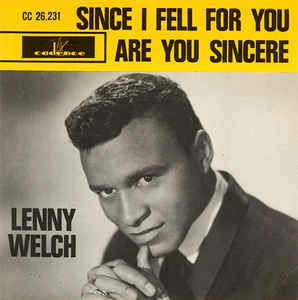Related Research Articles
"Goodnight, Irene" or "Irene, Goodnight," is a 20th-century American folk standard, written in 3
4 time, first recorded by American blues musician Huddie 'Lead Belly' Ledbetter in 1933. A version recorded by the Weavers was a #1 hit in 1950.

The Fontane Sisters were a trio from New Milford, New Jersey.
"Teach Me Tonight" is a popular song that has become a jazz standard. The music was written by Gene De Paul, the lyrics by Sammy Cahn. The song was published in 1953.
"Sincerely" is a popular song written by Harvey Fuqua and Alan Freed and first released by The Moonglows in 1954.
"Two Hearts", or "Two Hearts, Two Kisses " is a popular song, written by Otis Williams and Henry Stone in 1954. It was originally recorded by Otis Williams and the Charms, it first reached the Billboard R&B chart on March 23, 1955, and lasted 12 weeks on the chart, peaking at number 8.

"Who's Sorry Now?" is a popular song with music written by Ted Snyder and lyrics by Bert Kalmar and Harry Ruby. It was published in 1923 as a waltz. Isham Jones had a hit recording in 1923 with the song arranged as a foxtrot. Later sheet music arrangements, such as the 1946 publication that was a tie-in to the film A Night in Casablanca, were published in 2
2 time. Other popular versions in 1923 were by Marion Harris, Original Memphis Five, Lewis James, and Irving Kaufman.
Little Johnny Taylor was an American blues and soul singer. He made recordings throughout the 1960s and 1970s, and continued public performances through the 1980s and 1990s.
"Till Then" is a popular song written by Eddie Seiler, Sol Marcus, and Guy Wood and published in 1944.
"Chanson D'Amour" is a popular song written by Wayne Shanklin. A 1977 recording by the Manhattan Transfer was an international hit, reaching number one on the UK Singles Chart.

"Since I Fell for You" is a blues ballad composed by Buddy Johnson in 1945 that was first popularized by his sister, Ella Johnson, with Buddy Johnson and His Orchestra.
"Have Mercy Baby" is a popular rhythm and blues song, written by Billy Ward and Rose Marks, recorded by The Dominoes in Cincinnati, produced by Ralph Bass, and released by Federal Records in 1952. It was Number One on the R&B Charts for ten non consecutive weeks.
"(I Love You) for Sentimental Reasons" is a popular song written by Ivory "Deek" Watson, founding member of the Ink Spots and of the Brown Dots, and William "Pat" Best, founding member of the Four Tunes.
"(Now and Then There's) A Fool Such as I" is a popular song written by Bill Trader and published in 1952. Recorded as a single by Hank Snow it peaked at number four on the US country charts early in 1953.

"Eddie My Love" is a 1956 doo wop song. According to BMI and ASCAP, the song was written by Maxwell Davis (BMI), Aaron Collins, Jr. (ASCAP), and Sam Ling (BMI). Maxwell Davis played sax on the Teen Queens record. Aaron Collins was the brother of the Teen Queens. Sam Ling was an alias of Saul Bihari, co-founder of Modern, RPM, and other labels; Bihari and his brothers regularly attached their names to songwriting credits as a means of getting a cut of the royalties, as was common practice at the time.

"Hey There Lonely Girl" is a song released in 1969 by Eddie Holman. The original version "Hey There Lonely Boy" was recorded in 1963 by Ruby & the Romantics. It was a hit for both of them. It has since been recorded by many other artists.

"When You're Young and in Love" is a song composed by Van McCoy which first became a Top 40 hit single for the Marvelettes in 1967: a remake by the Flying Pickets reached the UK Top Ten in 1984.
"A Lover's Question" is a 1958 Pop, R&B hit for Clyde McPhatter. The single was written by Brook Benton and Jimmy T. Williams and was Clyde McPhatter's most successful Pop and R&B release. The bass singer is Noah Hopkins. "A Lover's Question" made it to #6 on the Billboard Hot 100 and was #1 for one week on the R&B chart.
"Happy Days and Lonely Nights" is a torch song written by Billy Rose and Fred Fisher, first recorded by The Harmony Brothers on May 18, 1928. The song was successfully revived in the 1950s in the US by the Fontane Sisters and in the UK most successfully by Ruby Murray.
"Jealous Heart" is a classic C&W song written by American country music singer-songwriter Jenny Lou Carson. In the mid 1940s it spent nearly six months on the Country & Western charts. It was subsequently recorded by several pop singers.
"Devil or Angel" is a song written by Blanche Carter and originally recorded by the Clovers in 1955, where it went to number four on the US R&B Best Sellers chart. It was re-recorded by John Bailey after he left the Clovers and formed another Clovers group for Lana Records in 1965.
References
- ↑ "Hearts Of Stone, BMI". Repertoire.bmi.com. Archived from the original on 2016-02-03. Retrieved 2016-08-22.
- ↑ Dave Marsh (1999). The Heart of Rock & Soul: The 1001 Greatest Singles Ever Made. Da Capo Press. p. 128. ISBN 0-306-80901-X.
- ↑ Whitburn, Joel (2004). Top R&B/Hip-Hop Singles: 1942-2004. Record Research. p. 114.
- ↑ Whitburn, Joel (2013). Joel Whitburn's Top Pop Singles, 14th Edition: 1955-2012. Record Research. p. 306.
- ↑ "RPM Top 100 Singles - May 19, 1973" (PDF).